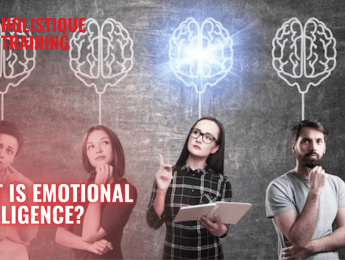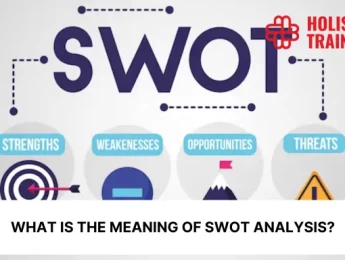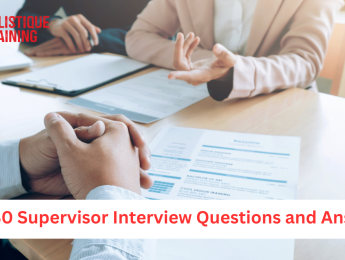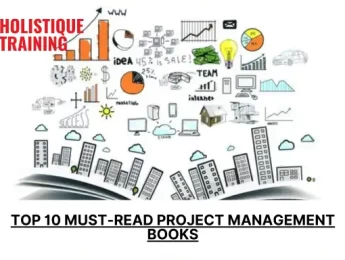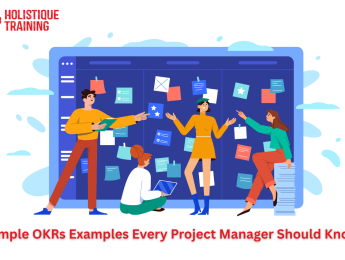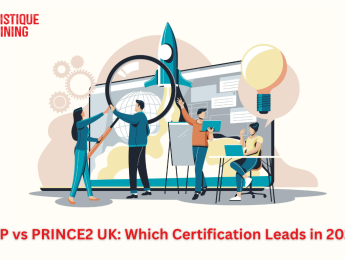- Table of Contents
- Introduction
- What Is Emotional Intelligence?
- The History of EQ
- Early Roots
- Goleman's Breakthrough
- Multiple Models
- The Four-Branch Model
- Application in Business
- Ongoing Evolution
- The Four Components of Emotional Intelligence
- Self-Awareness:
- Self-Management:
- Social Awareness:
- Relationship Management:
- How Do You Measure Emotional Intelligence?
- How to Identify a Lack of Emotional Intelligence
- 1. Difficulty Handling Feedback
- 2. Poor Conflict Resolution
- 3. Lack of Empathy
- 4. Inability to Adapt
- 5. Communication Issues
- Why Is Emotional Intelligence Important in the Workplace?
- Enhanced Leadership
- Effective Communication
- Conflict Resolution and Collaboration
- Customer Relations
- Resilience and Stress Management
- Cultivating a Positive Work Environment
- Adaptability and Innovation
- Tips to Boost Your EQ
- 1. Practice Self-Awareness
- 2. Develop Active Listening Skills
- 3. Cultivate Empathy
- 4. Manage Stress
- 5. Seek Feedback
- 6. Learn Conflict Resolution
- 7. Develop Emotional Regulation
- Emotional Intelligence in the Technological Era
- Embracing Empathy in Virtual Communication:
- Humanising Artificial Intelligence:
- Fostering Emotional Resilience in the Digital Age:
- Ethical Considerations in Technological Advancements:
- Conclusion
Introduction
As businesses continue to evolve in our interconnected and fast-paced world, the landscape of success is undergoing a transformation. No longer is prosperity solely dependent on technical prowess and industry expertise. An often-underestimated factor, emotional intelligence (EI), is proving to be the linchpin in achieving enduring growth and cultivating harmonious relationships within an organisation. In this in-depth blog post, we embark on a journey through the intricacies of emotional intelligence, dissecting its components, exploring measurement methods, and unravelling its profound importance within the workplace. Moreover, we'll unravel the signs that may indicate a deficiency in emotional intelligence and equip you with practical tips to elevate your EQ and drive your professional undertakings to new heights.
What Is Emotional Intelligence?
Emotional intelligence, often referred to as EQ, is the capacity to recognise, understand, manage, and effectively utilise emotions in oneself and others. It encompasses a wide range of skills and abilities that contribute to improved communication, empathy, conflict resolution, and overall interpersonal effectiveness. Unlike cognitive intelligence (IQ), which focuses on cognitive abilities, EQ centres on emotional and social competencies, making it a critical factor in personal and professional success.
The History of EQ
Understanding the concept of emotional intelligence requires delving into its intriguing history, which encompasses various stages of development and recognition.
Early Roots
The seeds of emotional intelligence were sown in the early 20th century when psychologists like Edward Thorndike began exploring the influence of social skills on success. However, the formal concept took time to solidify.
Goleman's Breakthrough
In the mid-1990s, psychologist Daniel Goleman brought the idea of emotional intelligence into the mainstream with his groundbreaking book "Emotional Intelligence." Goleman's work popularised the notion that EQ played a significant role in personal and professional success, sparking widespread interest.
Multiple Models
As interest grew, researchers developed various models to define and measure emotional intelligence. John Mayer and Peter Salovey introduced the concept of EQ as a form of intelligence involving the ability to perceive, understand, manage, and use emotions effectively.
The Four-Branch Model
Mayer and Salovey's model laid the foundation for the four-branch model of emotional intelligence, encompassing perception, facilitation, understanding, and management of emotions. This model formed the basis for later assessments and research.
Application in Business
By the late 1990s and early 2000s, businesses and organisations began recognising the relevance of emotional intelligence in the workplace. EQ became integral to leadership development, teamwork enhancement, and employee engagement initiatives.
Ongoing Evolution
Emotional intelligence has continued to evolve, with ongoing research shedding light on its profound impact on various aspects of life. While the core components remain consistent, the understanding of how emotional intelligence affects success has deepened.
The Four Components of Emotional Intelligence
Emotional intelligence consists of four interconnected components that collectively shape an individual's ability to navigate their emotional landscape and interact with others:
Self-Awareness:
Self-awareness serves as the cornerstone of emotional intelligence, enabling individuals to delve into their emotional complexities. It goes beyond mere recognition of emotions; it involves a deep understanding of their origins and implications. Those who possess high self-awareness are not only in tune with their emotions but also grasp how these emotions influence their thoughts and actions. This self-reflection provides a solid foundation upon which the other components of emotional intelligence can be built.
Self-Management:
Building upon self-awareness, self-management is the art of mastering one's emotional responses and behaviours. It demands a high degree of self-discipline, as individuals must learn to regulate their impulses and reactions, especially in challenging or stressful situations. Emotional resilience, a key aspect of self-management, empowers individuals to bounce back from setbacks and maintain composure amid adversity. Cultivating self-management skills enables individuals to adapt to change, fostering personal growth and professional success.
Social Awareness:
Often regarded as the essence of empathy, social awareness is the ability to not only perceive but also comprehend the emotions of others. It involves attuning oneself to the subtlest cues in people's facial expressions, body language, and tone of voice. This heightened sensitivity allows individuals to grasp the unspoken emotions of those around them, enabling them to respond with kindness and understanding. Social awareness is instrumental in building meaningful connections, fostering empathy, and creating a supportive, inclusive environment in both personal and professional spheres.
Relationship Management:
The pinnacle of emotional intelligence is reflected in an individual's proficiency in managing relationships. Relationship management encompasses a spectrum of skills, from effective communication to conflict resolution and collaboration. Those adept in this component possess the ability to navigate complex social interactions with finesse. They can mediate conflicts, inspire teamwork, and foster collaboration among diverse individuals. Relationship management, therefore, not only enriches personal connections but also drives collective success in team-oriented environments.
How Do You Measure Emotional Intelligence?
Measuring emotional intelligence involves assessing an individual's performance in the four key components mentioned earlier. Various assessment tools and methods have been developed to quantify an individual's EQ. The Emotional Quotient Inventory (EQ-i) and the Mayer-Salovey-Caruso Emotional Intelligence Test (MSCEIT) are two widely recognised assessments that provide insights into an individual's emotional intelligence strengths and areas for improvement.
It's important to note that while these assessments can offer valuable insights, emotional intelligence is not a fixed trait. It can be developed and enhanced over time through self-awareness, practice, and intentional effort.
Table 1: Emotional intelligence self-assessment
Emotional Intelligence Component | Self-Assessment Criteria |
Self-Awareness | - I am aware of my emotions in different situations. - I recognise how my emotions influence my thoughts and behaviour. - I can identify my strengths and areas for improvement. |
Self-Management | - I can effectively manage my stress and remain composed under pressure. - I can regulate my emotions and reactions in challenging situations. - I am adaptable and open to change. |
Social Awareness (Empathy) | - I can understand the emotions of others by observing their body language and tone of voice. I actively listen to others and consider their perspectives. - I can sense the emotions of a group or social situation. |
Relationship Management | - I communicate effectively and openly with others. - I am skilled at resolving conflicts and fostering teamwork. - I can influence and inspire others positively. |
How to Identify a Lack of Emotional Intelligence
Recognising a deficiency in emotional intelligence can be crucial in addressing interpersonal challenges and fostering personal growth. Here are some signs that might indicate a lack of emotional intelligence:
1. Difficulty Handling Feedback
- Defensiveness: Individuals lacking emotional intelligence might become defensive when faced with criticism. Instead of considering feedback objectively, they may take it personally, leading to negative reactions.
- Emotional Response:People with low EQ might react emotionally to feedback, becoming upset, angry, or frustrated rather than using it as an opportunity for growth.
- Lack of Action:Instead of using feedback as a tool for improvement, they may ignore it or dismiss it, hindering their personal and professional development.
2. Poor Conflict Resolution
- Escalation:Those with low emotional intelligence may escalate conflicts by reacting impulsively and aggressively. They may not employ active listening or empathetic understanding, making resolution difficult.
- Avoidance:Alternatively, they might avoid conflicts altogether, fearing the emotional intensity. Unresolved issues can fester, damaging relationships and team dynamics.
3. Lack of Empathy
- Insensitive Behaviour:Individuals lacking empathy might display insensitive or indifferent behaviour towards others' feelings. They may not comprehend the emotional impact of their actions and words on others.
- Self-Centredness: They may focus primarily on their own feelings and struggles, neglecting to consider the perspectives and emotions of others.
4. Inability to Adapt
- Resistance to Change:People with low emotional intelligence might resist change vehemently. They may prefer routine and predictability, and when faced with change, they can become stressed or anxious.
- Negative Reactions:In response to change, individuals lacking EQ might express negativity, complaining, or even sabotaging new initiatives due to their discomfort with unfamiliar situations.
5. Communication Issues
- Misinterpretation:Those with low emotional intelligence might struggle to interpret non-verbal cues, tone of voice, or subtle expressions, leading to misunderstandings.
- Inability to Convey Emotions: They might find it hard to express their own emotions clearly, leading to confusion or miscommunication about their feelings and needs.
- Difficulty in Building Relationships: Effective communication is the foundation of strong relationships. People with low EQ might find it challenging to build and maintain meaningful connections due to their communication struggles.
Acknowledging these challenges provides an opportunity for personal growth and development. It's crucial for individuals to actively work on enhancing their emotional intelligence through self-awareness, empathy development, and improved communication skills to lead more fulfilling personal and professional lives.
Why Is Emotional Intelligence Important in the Workplace?
The modern workplace is a dynamic ecosystem that thrives on collaboration, innovation, and adaptability. In this intricate web of interactions, emotional intelligence (EI) emerges as a cornerstone, shaping the fabric of successful organisations in ways that technical skills alone cannot achieve. In fact, according to LinkedIn, EQ holds a dual potency in predicting top performance, surpassing the influence of employee skills, knowledge, and expertise. Let's delve deeper into why EI holds such a pivotal role in the professional arena:
Enhanced Leadership
Effective leadership is not solely about making strategic decisions; it's about inspiring and motivating teams to achieve their best. Leaders with high emotional intelligence possess the ability to connect with their employees on a personal level. They understand their team members' strengths, weaknesses, and aspirations, fostering an environment of trust and mutual respect. This, in turn, drives engagement, productivity, and loyalty.
Effective Communication
In a world inundated with communication tools, the essence of genuine connection can sometimes get lost. Emotional intelligence emphasises active listening, empathy, and understanding non-verbal cues. Employees with well-developed EI are adept at deciphering not only the words but also the emotions underlying conversations. This fosters clearer communication, minimises misunderstandings, and enables smoother collaboration.
Conflict Resolution and Collaboration
Conflicts are inevitable in any workplace, but how they are handled can make a substantial difference. Employees with high emotional intelligence possess the ability to navigate conflicts with empathy and objectivity. They understand that differing viewpoints are valuable and strive to find common ground through effective communication and compromise. This skill ensures that conflicts are resolved constructively, leading to stronger relationships and more innovative solutions.
Customer Relations
Businesses thrive on customer satisfaction, and emotional intelligence plays a pivotal role in understanding and meeting customer needs. Employees who can empathise with customers' emotions and concerns provide more personalised and effective service. By addressing customer grievances empathetically, businesses can foster long-term relationships and positive brand perception.
Resilience and Stress Management
In a rapidly evolving business landscape, the ability to manage stress and adapt to change is paramount. Individuals with high emotional intelligence possess the emotional resilience to weather challenges without becoming overwhelmed. They can keep a clear head during high-pressure situations, making well-informed decisions that contribute to the overall stability of the organisation.
Cultivating a Positive Work Environment
A workplace where emotional intelligence is valued tends to radiate positivity. Leaders who lead with empathy and authenticity set the tone for a culture of openness, respect, and loyalty. This, in turn, leads to higher employee morale, reduced turnover, increased job satisfaction, and, ultimately, higher revenue. In fact, companies that earn the loyalty of their employees make 33% more revenue than companies with poor culture, according to the US Chamber of Commerce.
Adaptability and Innovation
Change is the only constant in today's business landscape. Employees with strong emotional intelligence are better equipped to adapt to changes, whether they involve new technologies, processes, or market shifts. Their ability to manage their own emotions and guide others through transitions ensures that the organisation remains agile and capable of embracing innovation.
Tips to Boost Your EQ
Boosting your emotional intelligence (EQ) is essential for personal and professional growth, enabling you to navigate social complexities, empathise with others, and make wise decisions. Here's a detailed elaboration of the provided tips to enhance your EQ:
1. Practice Self-Awareness
- Reflection:Regularly reflecting on your emotions allows you to recognise patterns. Understanding what triggers specific emotions helps you control reactions effectively.
- Journaling:Maintain a journal to jot down your feelings and experiences. This practice enhances self-awareness and provides a clear picture of your emotional state over time.
- Mindfulness Meditation:Engaging in mindfulness exercises helps you stay present, observe your emotions without judgement, and respond thoughtfully rather than impulsively.
2. Develop Active Listening Skills
- Eye Contact: Maintain eye contact with the speaker. It shows you are engaged and interested in their conversation.
- Non-Verbal Cues: Pay attention to facial expressions, gestures, and tone of voice. Non-verbal cues often convey more than words alone.
- Avoid Interrupting: Allow the speaker to finish their thoughts before responding. This demonstrates respect and genuine interest in their perspective.
3. Cultivate Empathy
- Perspective-Taking:Actively imagine yourself in someone else's position. Consider their emotions, thoughts, and experiences to genuinely understand their viewpoint.
- Validation: Acknowledge others' emotions and validate their feelings. It fosters trust and openness in relationships.
4. Manage Stress
- Mindfulness Practices: Engage in mindfulness meditation or yoga to stay grounded and reduce stress. Mindfulness helps you manage overwhelming emotions and approach situations with a clear mind.
- Physical Exercise:Regular physical activity releases endorphins, reducing stress and promoting a sense of well-being. It also improves overall emotional health.
5. Seek Feedback
- Open-Mindedness:Be open to criticism and view feedback as an opportunity to grow. Constructive criticism highlights areas where you can enhance your emotional intelligence.
- Implement Feedback: Act on the feedback received. Concrete changes based on feedback demonstrate your commitment to improving your EQ.
6. Learn Conflict Resolution
- Active Communication: Express your feelings and thoughts clearly and respectfully. Encourage others to do the same, fostering open dialogue.
- Understanding and Compromise: Seek to understand the root causes of conflicts. Finding middle ground through compromise promotes harmony and strengthens relationships.
7. Develop Emotional Regulation
- Pause and Reflect:In intense situations, take a moment to breathe and collect your thoughts. Avoid impulsive reactions, giving yourself time to respond rationally.
- Positive Self-Talk:Develop a positive inner dialogue. Encourage yourself during challenging times, reinforcing emotional resilience.
Remember, improving your emotional intelligence is a continuous process. By incorporating these practices into your daily life, you can enhance your self-awareness, empathy, and overall emotional well-being, leading to more meaningful relationships and effective decision-making.
Emotional Intelligence in the Technological Era
In the rapidly evolving technological landscape, emotional intelligence stands as a beacon of human connection amidst the digital sprawl. In an era dominated by artificial intelligence, machine learning, and virtual reality, the importance of emotional intelligence has never been more profound. As technology advances, the need for empathetic and emotionally intelligent individuals becomes increasingly vital, shaping the way we interact, collaborate, and innovate in the digital age.
Embracing Empathy in Virtual Communication:
In an era where virtual meetings and online collaborations are the norm, understanding the nuances of human emotions is essential. Emotional intelligence enables individuals to decipher subtle emotional cues in digital communication, such as tone of voice in emails or facial expressions during video conferences. This understanding fosters effective remote teamwork, ensuring that even in virtual spaces, empathy and understanding remain at the heart of human interaction.
Humanising Artificial Intelligence:
While AI continues to revolutionise various industries, integrating emotional intelligence into AI systems is pivotal. Emotional AI, or affective computing, allows machines to recognise, interpret, and respond to human emotions. This technology not only enhances customer service, making interactions more personalised and empathetic, but also assists in mental health applications, where AI-driven tools provide emotional support and therapy, demonstrating a harmonious blend of technology and human empathy.
Fostering Emotional Resilience in the Digital Age:
The digital era brings with it a unique set of challenges, from online harassment to information overload. Emotional intelligence equips individuals with the resilience needed to navigate these challenges. By understanding and managing their own emotions effectively, people can maintain composure in the face of online negativity, promoting a healthier digital discourse. Additionally, emotional intelligence empowers individuals to empathise with the experiences of others online, fostering a culture of understanding and kindness in the virtual realm.
Ethical Considerations in Technological Advancements:
As technology continues to advance, ethical dilemmas arise, ranging from data privacy concerns to the impact of automation on employment. Emotional intelligence plays a crucial role in addressing these dilemmas with empathy and ethical reasoning. Emotionally intelligent leaders and policymakers can navigate these complexities, considering the human impact of technological decisions and ensuring that innovations are aligned with societal well-being.
In summary, as we navigate the technological era, emotional intelligence emerges as the bridge between the digital and human worlds. By cultivating empathy, understanding, and ethical reasoning, individuals and societies can harness the power of technology while preserving the essential human qualities that make our interactions meaningful and compassionate, ensuring a harmonious coexistence between humanity and the digital frontier.
Conclusion
Emotional intelligence is more than just a buzzword; it's a vital skill that can make or break success in the business world. The ability to understand and manage emotions, both in oneself and others, is fundamental to effective communication, collaboration, and leadership. By focusing on developing the four components of emotional intelligence—self-awareness, self-management, social awareness, and relationship management—individuals can enhance their interpersonal skills and create a positive impact in the workplace. By recognising the signs of a lack of emotional intelligence and actively working to improve it, professionals can unlock new levels of success and create a harmonious work environment that breeds innovation and growth. So, invest in your emotional intelligence today, and reap the rewards for your personal and professional journey.
If you're ready to take the leap and unlock your full potential, our course ‘Excelling in Emotional Intelligence’ is just what you need to kick start this journey. This course is designed to equip you with actionable strategies, real-world insights, and hands-on exercises that will propel you towards becoming an adept navigator of emotions, both in yourself and others. Your success story awaits; seize the opportunity to excel in emotional intelligence and pave the way for a brighter, more fulfilling future in the world of business. Enrol now!


